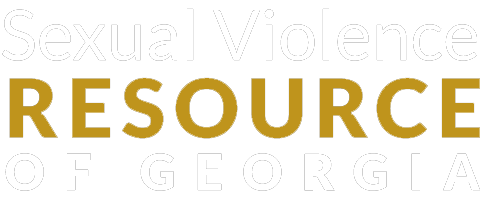Multidisciplinary Investigation & Prosecution of Child Abuse, Sexual Abuse, & Sexual Exploitation
State
This memorandum of understanding (MOU) is for nurses who are registering for the Criminal Justice Coordinating Council's Didactic SANE training. It must be completed, signed and uploaded to Formstack during registration.
The Georgia Network to End Sexual Assault (GNESA) is the sexual assault coalition for the state of Georgia. They are a membership organization that offers support and education to the sexual assault centers as well as trainings for law enforcement, sexual assault nurse examiner (SANE), and advocacy.
The Prosecuting Attorney's Council of Georgia provides a number of important services to the hundreds of elected and appointed prosecutors across the State of Georgia. The council consists of nine members, six district attorneys and three state court solicitors who establish policies that guide the day-to-day of the Council staff.
Among the duties performed by the Council staff are:
- Training, professional development and continuing legal education
- Legal research assistance and preparation of prosecution manuals.
- Professional responsibility guidance and legislation review and analysis
- Trial and appellate practice support
- Payroll, procurement, budgeting and asset management
- Technology procurement, information management and communications
Checklist for Advocates, Law Enforcement, Medical, and Prosecution
The purpose of taking inventory of existing services is to examine agencies in your community currently addressing victims of sexual assault and to become aware of all services and resources available to these victims. The inventory should be as comprehensive as possible, and it should include services from your local sexual assault crisis center, law enforcement agencies, prosecutors’ offices, medical facilities, mental health programs, victim services organizations, culturally specific service providers, faith based agencies that may be providing survivor support services, and other social service agencies that are able to assist sexual assault victims. The result of the inventory of existing services is a comprehensive directory of agencies and organizations providing services to victims of sexual assault within your community.
To conduct the inventory, your SART needs to develop a questionnaire to identify five issues:
An MOU can serve as your written protocol until your protocol has been completed.
Document:
samplememorandumofunderstanding.pdfAs part of their SART meetings, some SARTs include a discussion of the response to specific sexual assault cases. Prior to any discussions related to specific cases, it is of critical importance that a confidentiality policy be adopted. A victim-centered response recognizes the importance of evaluating what and how information is shared so that the privacy and safety of the victim remains paramount. This may include obtaining the permission of a victim for case review purposes. Usually this information would be obtained by the victim advocate and/or medical personnel responding to the sexual assault.
Document:
samplesartconfidentialityforms.pdf- This sample protocol is to be used as an example only and does not replace the collaborative aspects of developing a community based Sexual Assault Response Team. Input from local agencies on each community's policies and procedures is essential.
- Please note that this sample protocol uses the term “patient” in the forensic medical sections as it is not the job of the SANE to determine whether the elements of a crime have been met, but to treat the patient and document evidentiary findings
This sample protocol is provided to assist communities in compliance with O.C.G.A. 15-24-2
This confidential survey is conducted to determine the victims’ assessments of how well the system is responding to their needs. The VES should assess the feelings of the victims regarding how their cases were handled and how they were treated by each agency/organization. To find out information about how each agency/organization responds to sexual assault victims, it is important to assess victims throughout the criminal justice process, including those whose cases
Document:
sample-victim-experience-survey.pdfCreated as a part of the Georgia SART Project, the goal of the Guide is to assist law enforcement officers, prosecutors, court personnel, and victim service providers with a statewide, unified, consistent response to cases of sexual assault. The Guide is meant to serve as a resource for SARTs across Georgia as they develop their own sexual assault response protocols; strengthening community-specific plans, but not replacing them. The ultimate outcome is for each judicial circuit to have a trained SART and coordinated response to sexual assault; ensuring that victims are safe, and offenders are held accountable.
